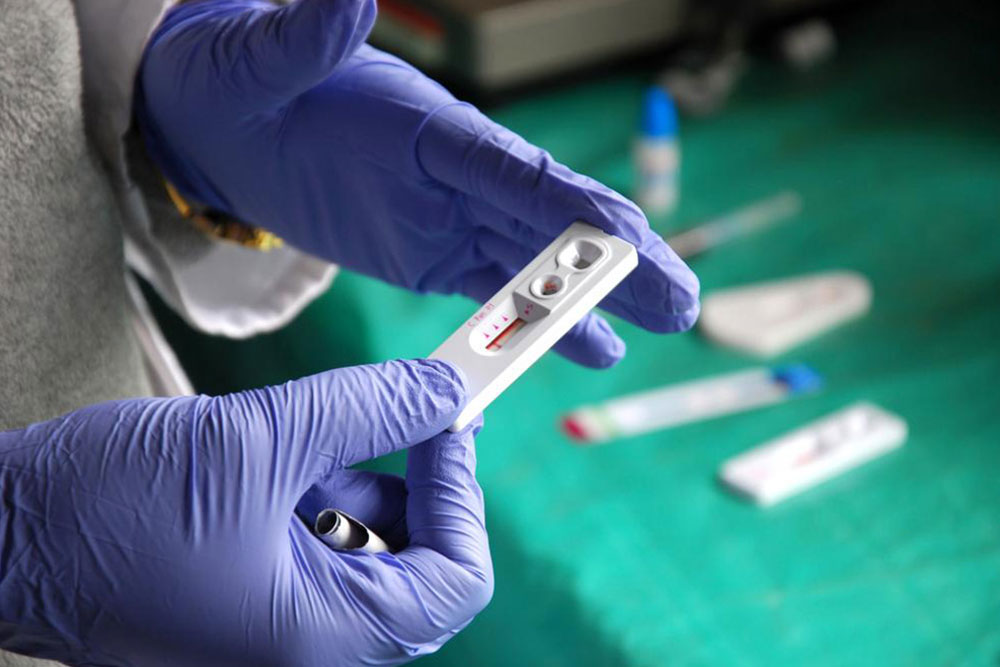Comprehensive Guide to Identifying and Managing Diarrhea
This comprehensive guide provides detailed information on recognizing, diagnosing, and managing diarrhea effectively. It covers common symptoms, causes, preventive measures, and treatment options to help individuals and caregivers handle this common health issue better. Early intervention and proper care are emphasized to avoid serious complications such as dehydration and malnutrition, making it an essential resource for all ages, especially children.

Comprehensive Guide to Identifying and Managing Diarrhea
Diarrhea is a common health issue that can significantly impact daily life and overall well-being if not addressed promptly and effectively. Early detection and appropriate treatment are essential steps to prevent potentially severe complications, including dehydration, malnutrition, and more serious intestinal issues. Recognizing the classic signs and understanding the underlying causes can improve outcomes and help individuals seek timely medical care.
Typically characterized by symptoms such as frequent loose stools, abdominal discomfort, and sometimes blood in the stool, diarrhea can affect all age groups but is particularly prevalent among children. Studies indicate that nearly 90% of diarrhea cases occur in children worldwide, highlighting the importance of targeted prevention and treatment strategies for this age group.
What Causes Diarrhea?
Diarrhea is primarily caused by infections from viruses, bacteria, or parasites, often resulting from contaminated food or water. Poor sanitation, inadequate hygiene, and unsafe drinking water are major contributors to the spread of these pathogens. Common infectious agents include viruses like rotavirus and norovirus, which are highly contagious, as well as bacteria such as Salmonella, Escherichia coli (E. coli), and parasites like Giardia lamblia.
Beyond infections, certain medications can trigger diarrhea. These include antibiotics, which disturb the natural gut flora, antacids containing magnesium, and chemotherapy drugs used in cancer treatment. Post-surgical digestive issues, food intolerance (e.g., lactose or fructose intolerance), and excessive alcohol intake can also cause or worsen diarrhea. Furthermore, specific health conditions such as hyperthyroidism, diabetes, inflammatory bowel disease (IBD), and irritable bowel syndrome (IBS) are associated with persistent or recurrent diarrhea episodes.
Recognizing the Symptoms of Diarrhea
This condition presents various symptoms that can range from mild to severe. Typical signs include:
Abdominal cramps and pain
Urgent need to have a bowel movement
Loose, watery stools occurring frequently
Dehydration symptoms lasting more than two days, such as dry mouth, extreme thirst, and dizziness
High fever, often accompanied by chills
Blood in stool or stool that appears tarry or mucous-filled
Unintentional weight loss over time
Persistent vomiting leading to further dehydration
Nausea, confusion, irritability, increased heart rate, and drowsiness, especially in adults
Since dehydration symptoms often overlap with diarrhea symptoms, immediate medical attention is necessary. Children with bloody stools, mucus, a temperature above 102°F, or dehydration that persists over a day should seek urgent care. Adults experiencing severe symptoms or diarrhea lasting more than two days should also consult healthcare professionals promptly.
Effective Treatment Strategies for Diarrhea
Managing diarrhea effectively involves a combination of hydration, dietary adjustments, medications, and rest. Hydration is paramount; drinking plenty of fluids such as water, oral rehydration solutions, or herbal teas helps replenish lost electrolytes and fluids. It is advisable to avoid milk, fatty foods, spicy dishes, and caffeine during recovery, as these can aggravate symptoms.
Following the BRAT diet—bananas, rice, applesauce, and toast—can aid in soothing the digestive system and promote recovery. For nausea relief, sucking on ice chips or small sips of clear fluids can be beneficial. Adequate rest is essential, and strenuous activities should be avoided until symptoms subside.
Additional treatment options depend on the underlying cause:
**Antibiotics or antiparasitic medications** are effective if the diarrhea is caused by bacterial infections or parasites. These are often prescribed after diagnostic testing and are especially useful for travel-related diarrhea.
If medications are suspected to cause diarrhea, consult your healthcare provider for possible alternative treatments or dosage adjustments.
Incorporate foods rich in fiber, potassium, and iodine, such as bananas, potatoes, broth-based soups, and plain crackers, to support gut health.
Avoid foods and drinks containing lactose, fructose, caffeine, and artificial sweeteners, which can exacerbate symptoms.
Probiotics can be helpful in restoring healthy gut bacteria, especially after a course of antibiotics, thus aiding in faster recovery.
In cases of persistent or severe diarrhea, medical evaluation is essential to determine the root cause and initiate targeted therapy. Preventive measures, including good hygiene practices, safe food handling, and vaccination (such as rotavirus vaccine for children), play vital roles in reducing diarrhea incidence.
Dealing with diarrhea proactively by understanding its causes, symptoms, and management strategies can significantly reduce health risks and improve quality of life. If symptoms persist or worsen, consulting healthcare professionals without delay is crucial for effective treatment and prevention of complications.





